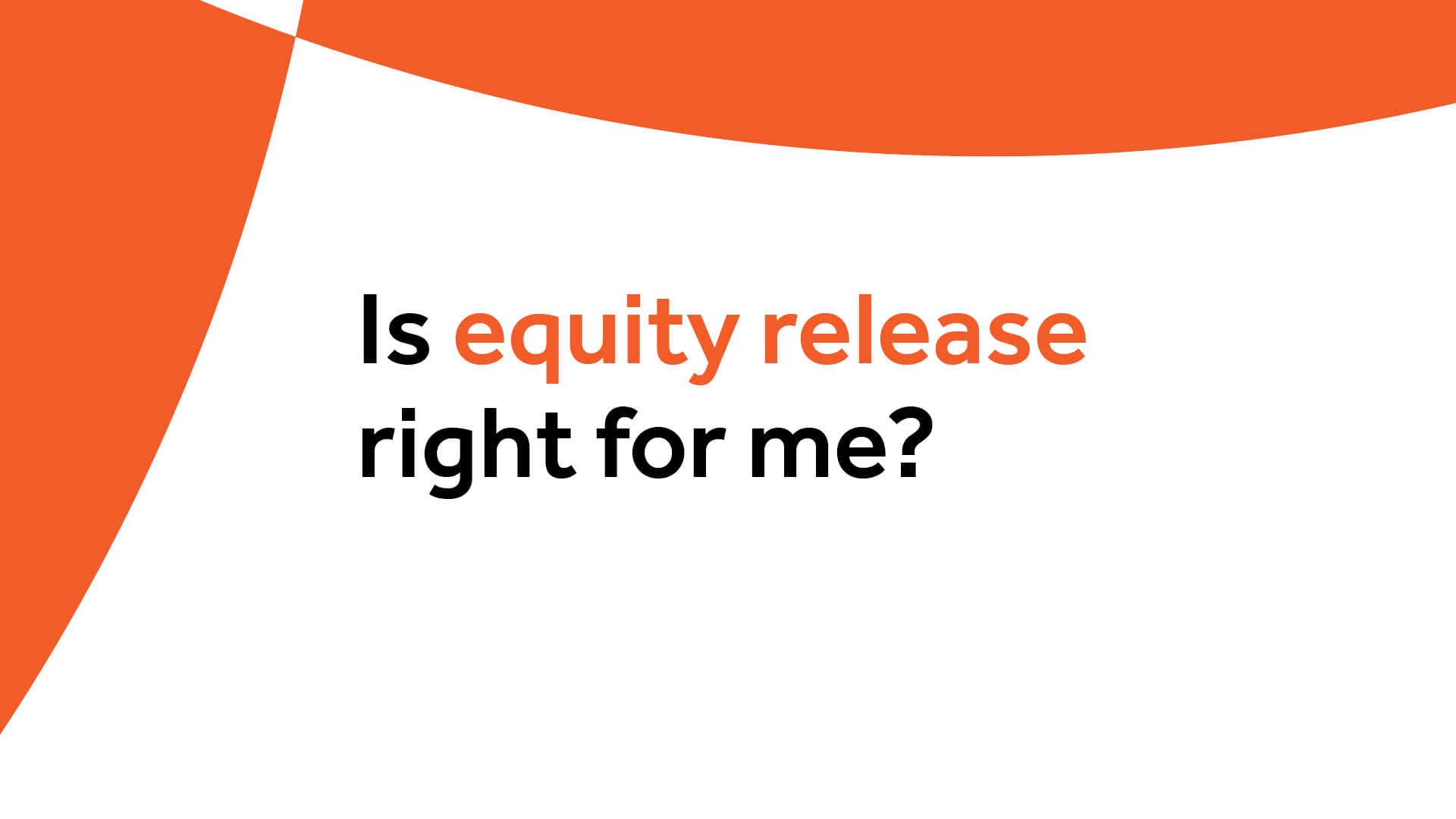We use some essential cookies to make our website work properly.
We’d also like to set additional cookies to help us improve our website, tailor marketing and provide a more personal experience.
Equity release is a way for homeowners aged 55+ to access some of the tax-free funds from the value of their home. It could help you take control of your retirement finances. All our equity release advice relates to lifetime mortgages - a loan secured against your home.
ⓘ Be financially aware. Equity release comes with drawbacks which are important to think about.
You can use the money you unlock through equity release in several ways, such as:
If you have an existing mortgage, equity release could help you clear it to free up more disposable income. This could give you peace of mind and make it easier to manage your finances in retirement.
By using a lifetime mortgage (which is a type of equity release) to clear an existing mortgage, you could reduce your monthly outgoings and help fund a more comfortable retirement.
Looking to downsize?
In the past, many felt the only way to access the value from their home was by downsizing. However, aside from the costs that come with downsizing such as conveyancing, surveys, solicitors and moving fees, there are also the obvious emotional repercussions of leaving a home you love.
With a lifetime mortgage, which is a loan secured against your home, you could release a certain amount of the value of your property. The lifetime mortgages we recommend let you stay in the home you love and remain the owner.
Equity release can be used to gift money to a family member. This could be a way to help them with their own financial needs.
From helping a loved one get onto the property ladder, contributing to university fees or even getting a grandchild onto the road with their first car, we’d all like to be able to help those we care about.
If you have existing debts, equity release could help you to pay them off. By releasing some equity from your home using a lifetime mortgage, you could use it to pay off debts such as credit cards and loans, car finance payments or other loans.
This could free up your monthly income and put more money in your pocket. However, you should always think carefully before securing a loan against your home to repay existing debt.
If you're thinking of making some home improvements, equity release could provide you with the funds you need, from future proofing your property to installing a new kitchen (subject to criteria).
If you want to stay in the home you love for as long as you can, you'll want it tailored for you and your needs. It’s likely as you get older, modifications will have to be made to accommodate your changing needs. With age, everyday tasks can become more difficult. But by making a few improvements, you might be able to stay in your home for longer and enjoy a better quality of life.
Modifications to your home, such as stairlifts, a more accessible bathroom, ramps and household aids, can make all the difference between staying in familiar surroundings and downsizing or even moving into long term residential care.
Whatever stage of life you’re at and whatever budget you’ve got to use, there’s almost always something you can do to improve your home and increase your independence.

Watch our video to learn more about the benefits and drawbacks of equity release and see if it could be right for you.
All our equity release advice relates to lifetime mortgages - a loan secured against your home.
Video transcript (pdf)
Your other options with Key
If another product is more suitable, we'll refer you to a different specialist adviser within Key Group who can help. If you go ahead, you’ll never be charged more than our standard fixed advice fee of £1,699, even if their fee is higher. Key offers alternatives to equity release such as a retirement interest-only mortgage or retirement repayment mortgage.
Other options to think about
It's important to know your other options before going ahead with equity release. These include: home reversion, downsizing, unsecured lending, using existing assets, or support from friends or family.
Not eligible for equity release?
If you're not eligible now, try our later life mortgage finder. We could still help you take control of your later life finances.
Key is a specialist, award-winning equity release provider for the over 55s. We could help turn your property wealth into a way to fund your retirement. We research all later life mortgage options and provide trusted, expert advice that's personal to you. If equity release isn't right for you, we'll tell you.
We're here to help you
Our friendly equity release team's available: Mon-Thurs 9am-8pm, Fri 9am-5pm, Sat 9am-1pm, Sun closed.
Call free on 0808 252 9170 or book a call and we'll get in touch with you.